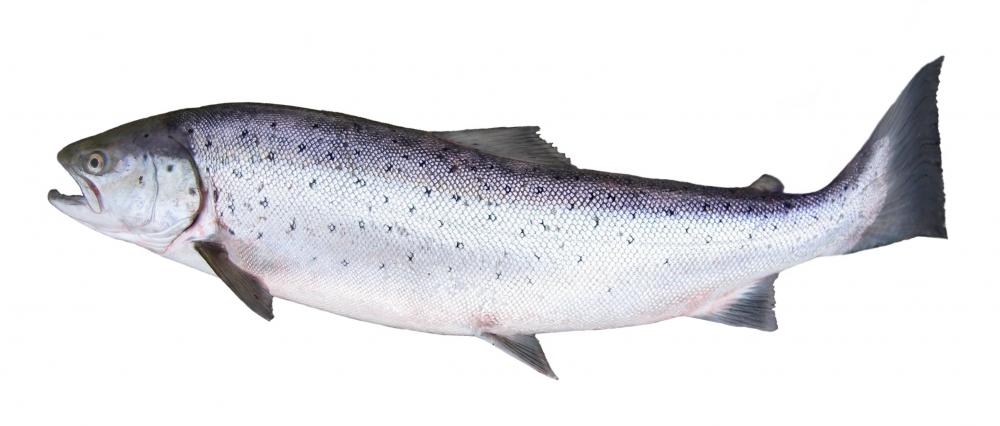As you know, proteins are the building blocks of the body. So adding an adequate amount of protein to your diet is essential to maintain a healthy body.
Fishes are one of the excellent sources of protein. Apart from protein, fishes are abundant in other nutrients like vitamins and minerals. Different types of fish have different amounts of protein and nutrient content. Read this article to learn about some of the fish that are high in protein content and other vitamins and minerals.
Why is protein important?
The majority of the body’s energy comes from protein. Since it is present in all of your cells and tissues, protein consumption is crucial for both the development and repair of the body and the maintenance of good health. It is the second most prevalent component in the body after water, giving the body around 15% of the dietary energy.
How much protein is a good amount?
According to the Recommended Dietary Allowance (RDA), you should strive for 0.8 grams of protein per kilogramme of body weight. And the best way to enhance the amount of protein in your body is by adding seafood to your diet.
Top high-protein fish and their benefits:
Fishes are a great source of protein and amino acids. Below are some of the top fish with a high amount of protein that you can add to your diet. The protein and calorie content for each fish is based on a 3 ounce serving, making is easier to compare them.
- Yellowfin tuna:
Protein: 25 grams
Calories: 110 calories
Yellowfin tuna is a long ocean fish that can grow to weigh up to 450 pounds (approx. 200 kg) and up to 7 feet (approx. 2m) in length. It can be found throughout the Pacific, Atlantic and Indian oceans.
Yellowfin tuna has a high amount of protein and a lesser amount of calories and fat. They contain vitamins like Vitamin A, Vitamin B6, and Vitamin B12, and minerals like magnesium, potassium and phosphorus.
Health benefits:
- Yellowfin tunas have a good amount of omega-3 fatty acids. They help improve heart health, reduce cholesterol and fight inflammation.
- The high amount of potassium in Yellowfin tunas help lower blood pressure levels.
- Nutrients like Zinc, Selenium, Manganese and Vitamin C help improve immunity.
- Salmon:
Protein: 23 grams
Calories: 156 calories
One of the most widely consumed fishes in the world, salmons are native to the Pacific and Atlantic oceans. They have a low amount of carbs and a high amount of protein.
Health benefits:
- The vitamin B12 present in salmons helps the body produce DNA and keeps blood and nerve cells functioning.
- They reduce the risk of mental illnesses like Alzheimer’s disease, dementia, etc.
- The omega-3 fatty acids improve heart health and prevent heart attack and stroke.
- Halibut:
Protein: 16 grams
Calories: 94 calories
A Halibut is a fish popularly known for having both eyes on the right side of its head. They can grow up to 8 feet long and weigh over 500 pounds. They have an average lifespan of 55 years.
Like any other fish, halibuts have many nutrients in them. They contain micronutrients like Vitamin B3, B6, B12, phosphorous, magnesium and selenium.
Health benefits:
- Nutrients like selenium, magnesium, and omega-3 fatty acids in halibuts can help improve heart health.
- Vitamin B3 helps promote a healthy heart and protect your skin from harmful UV rays.
- Consuming halibuts can help manage chronic inflammation, benefit your nervous system, maintain a healthy heart, speed up muscle fibre recovery and more.
- Tilapia:
Protein: 22.5 grams
Calories: 109 calories
Tilapias are a popular freshwater fish with a high protein content with less fat and calories. They are a good source of B and D vitamins and contain minerals like phosphorous, potassium and selenium.
Compared to other fish, tilapias are relatively less expensive and don’t taste too fishy, which is one of the reasons it is so popular.
Health benefits:
- The high amount of protein content can help with the body’s growth and development, and aid in cellular repair and metabolism.
- Consuming tilapia, which has a low amount of calories and fat, can be a good way to control your calorie intake while having a satisfying meal.
- The omega-3 fatty acids present in tilapia can aid heart and brain health.
- Sardine:
Protein:21 grams
Calories: 117 calories
Sardines, a popular small fish variety, received its name from Sardinia, an island in Italy where they are abundant. They are found prominently in the Atlantic, Pacific and Mediterranean seas and can be enjoyed fresh or canned.
Sardines are packed with nutrients that are beneficial in preventing many health conditions. They are sometimes recommended to adults and pregnant women since they have a lower amount of mercury than other fish.
Health benefits:
- Sardines have omega-3 fatty acids that can help prevent heart disease and blood pressure.
- Sardines contain Vitamins B12 and D, which help maintain the cardiovascular system and promote bone health respectively.
- Sardiens are abundunt with calcium. This makes them a good choice for lactose-intolerant people to get more calcium in their body.
- Cod:
Protein: 19 grams
Calories: 89 calories
Cods have flaky, white flesh with a mild flavor. They are packed with vitamins, minerals and protein. One serving of cooked cod provides over 30% of the RDI (Reference Daily Intake) for Vitamin B12 in adults.
Cod livers can be processed and made into cod liver oil, a great source of Vitamin A, B, D, E, and omega-3 fatty acids.
Health benefits:
- Cod has several nutrients packed in them. This helps promote good health and can even be weight-loss friendly.
- Cod has less amount of fat than other fish varieties. So it is a good choice for people who wish to have no fat in their diet.
- Cod has a high amount of iodine, which controls thyroid functions. Consuming an adequate amount of cod can increase the iodine in your body and prevent problems like hypothyroidism, goitres and birth defects.
- Rainbow Trout:
Protein: 20 grams
Calories: 128 calories
Rainbow trout tastes mildly like salmon and has a soft texture. They are colorful and found along the rivers and ponds around North America and Europe.
Trouts are rich in omega-3 fatty acids, minerals and vitamins like B3, B5, B6 and B12. They are also a great source of niacin, selenium, potassium and phosphorous.
Health benefits:
- Just like any other fish, the omega-3 fatty acids present in trouts help maintain a healthy heart.
- The niacin present in trouts can help with issues concerning digestion, nerve functions and maintaining healthy skin.
- Trouts contain a considerably low level of mercury than other fish and are a healthy alternative to salmons.












